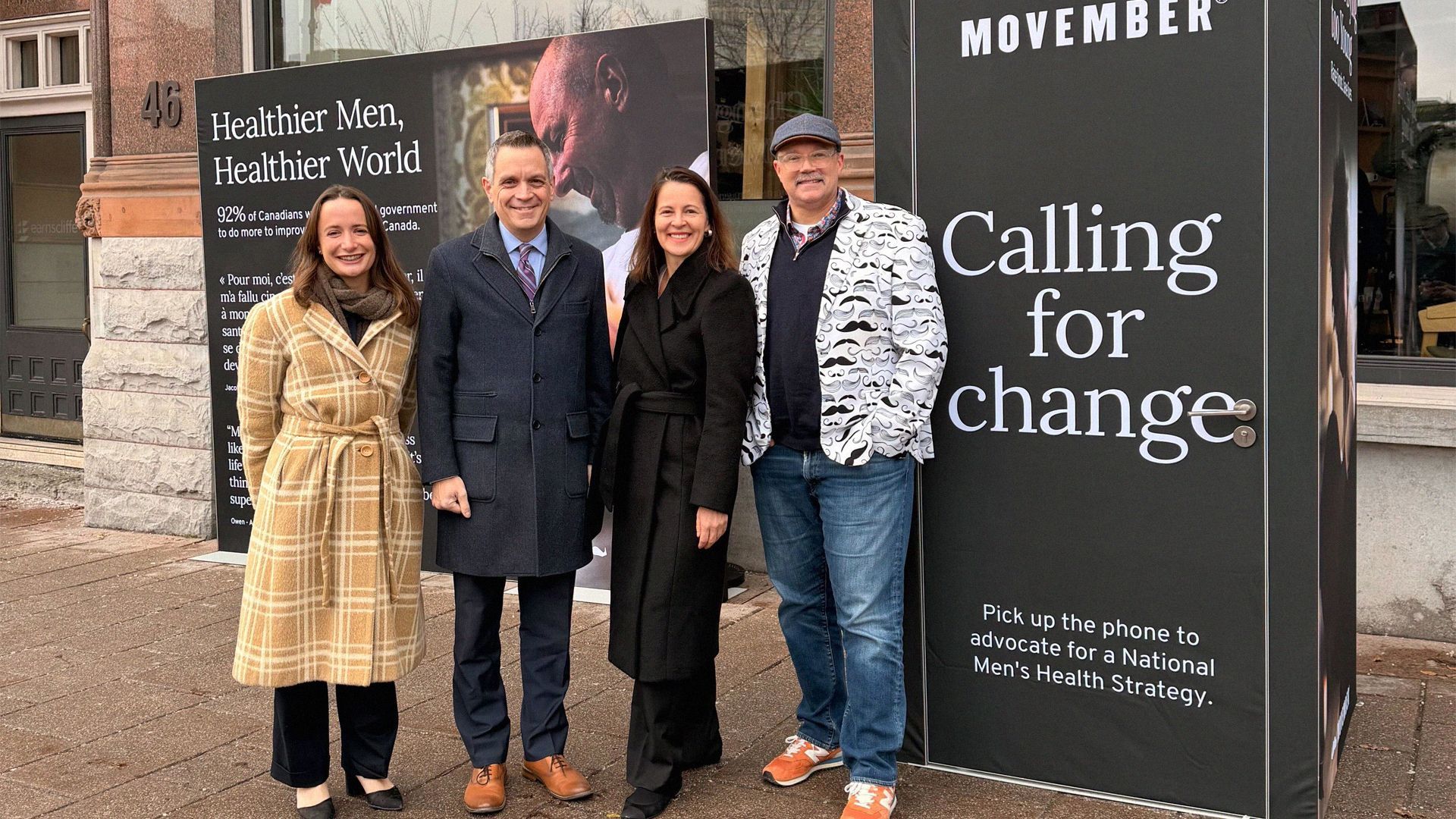




Movember called Ottawa – and Canadians answered
If you were anywhere near Elgin Street in Ottawa last week, you probably noticed something unexpected. Bold. Towering. Impossible to ignore. Movember’s Phone Booth, calling the Parliament of Canada for change. Read more about how Canadians showed up for men’s health in the Capital.
What’s this phone booth all about?
Last year, the booth first popped up on Dublin’s iconic Grafton Street, inviting people to step inside and share real stories about men’s health. This year, we brought it home — and Canadians answered the call.
Over two days, innumerable Canadians from all walks of life stepped inside to share messages for the men and boys in their lives. They spoke about mental health, loneliness, the pressure to be “strong” and the need for a system that meets men where they are. These stories were targeted directly to the leaders shaping Canada’s health priorities.
Ottawa showed up
At our evening reception on Parliament Hill, more than 150 people filled the room, including over two dozen Members of Parliament, senior government staffers, sector leaders, researchers, community partners and supporters.
For many, it was the first time they saw the real face of Movember in 2025: a global organization driving policy change, investing in community programs and working to transform health outcomes for men and boys.
The highlight of the evening came when the Honourable Marjorie Michel, Canada’s Minister of Health, addressed the room and publicly affirmed her commitment to improving men’s and boys’ health — a first for a federal Health Minister in Canada.
Our Global CEO, Michelle Terry, travelled from Australia to be part of these conversations, reinforcing the global momentum behind gender-responsive health and Canada’s opportunity to lead among partner nations like Australia, Ireland and the UK.
Why we’re here
The stats are sobering. More than two in five men in Canada (44 percent) will die before the age of 75 — most from preventable causes like cancer, coronary heart disease and suicide. The numbers are even more stark for Indigenous men, racialized men and those in vulnerable communities.
Behind these outcomes are real barriers: stigma, gender bias, harmful masculine norms and delayed help-seeking. Sixty-five percent of men wait six days before seeking help for symptoms. One in ten delay care for over two years.
The message we’re sending
Poor men’s health doesn’t only affect men — it affects families, workplaces and the entire country. In 2023 alone, poor men’s health cost Canada an estimated $12.4 billion.
That is the equivalent of fully operating more than 12 major hospitals for a year.
It’s time for systematic, measurable change.
Canada needs a National Men’s Health Strategy that reaches, responds and retains men in care by strengthening mental-health literacy, equipping providers with the tools to engage men effectively, scaling culturally informed programs and advancing research through a Canada-wide Men’s Health Centre with provincial hubs.
Men’s health is Canada’s health. When we improve outcomes for men and boys, we strengthen families, reduce pressure on caregivers and build healthier communities.
And Canadians agree
New polling from Abacus Data shows overwhelming support for federal action:
- 92 percent of Canadians want the Federal government to do more for men and boys.
- 81 percent of Canadians support a national men’s and boys’ health strategy focused on prevention, screening and mental health supports.
- 95 percent agree that it benefits everyone, not just men. This support is consistent across gender, age, region and education.
The time for action is now
Other countries, Australia, Ireland and the U.K., have already taken national steps to close gaps in men’s health. Having a system that responds to the unique needs of men is not radical. It is smart governance. It strengthens the workforce, reduces health care costs and supports communities from coast to coast.
Canadians answered the call. It’s time for the Canadian government to do so as well.